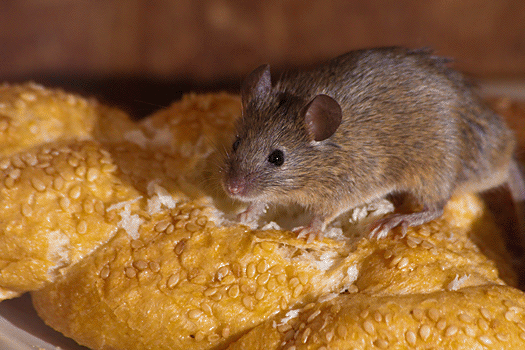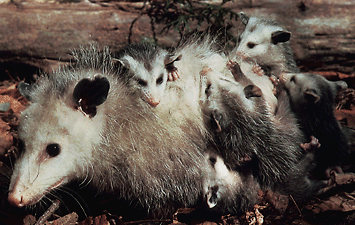Cat-Poop Parasite Makes Mice Fearless
Thursday, October 3rd, 2013October 3, 2013
A parasite that causes infected mice to lose their hard-wired fear of cats may do so by permanently changing the brains of the mice, according to research reported by scientists at the University of California, Berkeley. The parasite, called Toxoplasmosis gondii, causes toxoplasmosis, a widespread infection in cats as well as humans. The researchers reported that the mice in their study remained unafraid of cats even after having only a mild infection or having been cured.
Cats infected with T. gondii shed the parasite in their feces. Rodents usually become infected by eating cat feces. (People usually pick up the parasite by eating food contaminated by cat feces or eating the uncooked meat of infected animals, such as pigs and sheep.) Once the parasite enters the body, it works its way into nearly every organ, including the brain. There it may form cysts (fluid-filled sacs).

A parasite that causes infections in cats can permanently change a mouse's inborn fear of cats. (© Shutterstock)
Mice have an inborn fear of cats. The smell of cat urine, which outdoor cats use to mark their territory, helps mice avoid the predator felines. Researchers had previously discovered that mice with fullblown toxoplasmosis were not frightened by the smell of cat urine. However, the Berkeley scientists found that the mice remained fearless even if they had only a short or mild infection. In other words, just being exposed to the mind-controlling parasite permanently changed the mice’s behavior, making them more vulnerable to the cats.
The scientists don’t know how the parasite changes mice brains. They speculated that it may damage cells in the brain that are involved in smell, or it may “rewire” cells involved in learning and memory.
The findings may have an important effect on the way physicians treat people with infectious diseases. People normally expect that being cured of an infection means the symptoms of the infection will also disappear, team leader Wendy Ingram told BBC news. “Now we have an example where there is no obvious damage done by the parasite, yet major changes in the neurobiology of the mouse remain after the parasite is gone. Parasites and bacteria may affect human health long after the microorganisms have gone from the body.”
Additional World Book articles:
- Infections Spread by Pets (a special report)



